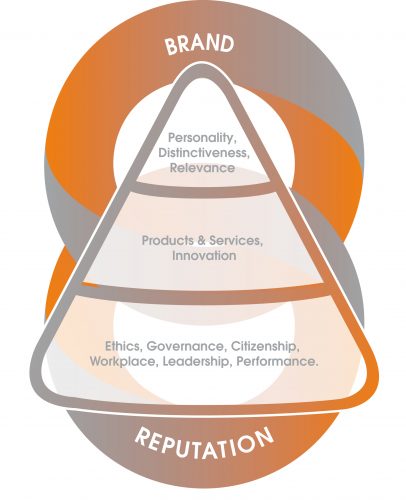
Reputation Managers: Beware the law of the instrument.
I’m sometimes asked why we at Tovera focus on providing insight and strategic advice for reputation and brand building and not on the implementation of resulting strategies. My answer is always the same – it’s critical we do not have a channel bias so are free to advise on the actions most important to building and protecting brand and reputation.
The law of the instrument, otherwise known as the law of the hammer or Maslow’s hammer is instructive in explaining why this is important.
The law of the instrument is a cognitive bias that leads to an over-reliance on a familiar tool. As Abraham Maslow wrote in 1966: I suppose it is tempting, if the only tool you have is a hammer, to treat everything as if it were a nail.
In the world of corporate brand and reputation management, the obvious example of the law of the instrument in practice is when businesses want to review, assess or develop their reputation they turn to a PR, communications or advertising agency. While these may well be experts in their field, therein lies the problem. They are also channel specialists whose natural inclination is to recommend more of what they’re good at: more PR, more communications or more advertising. They have an obvious channel bias. A hammer, if you will.
If we accept that a corporate reputation is the sum of the perceptions, experiences and resulting expectations people hold of a company, then it’s obvious that leaping straight to a channel without first understanding what exactly a reputation is, what is driving it and how it can be improved, is never going to result in a sound strategy.
There are many examples where brand and/or reputation strategies have been developed in vacuums which then digressed from business strategy and/or were misaligned with existing behaviours. These misalignments expose companies to reputation risk and potential value destruction.
Companies saying one thing and doing another can produce catastrophic results. Recent examples being the Co-op Bank: positioned as the ethical bank, later found to have a seriously unethical CEO; BP: launched a new brand proposition “Beyond Petroleum, part of the solution” then found to be very much part of the problem; Carrillion: Making Tomorrow a Better Place. Seriously?! And finally, Oxfam: Building a future free from the injustice of poverty, yet not having effective safeguarding measures in place to ensure staff members didn’t abuse those very injustices.
The above are all are examples where companies appeared to have invested heavily in communicating without first getting a rounded, unbiased view of what defined their reputations; where there might have been risks to address and opportunities to leverage.
The abiding reputation management principle of acting deliberately, thoughtfully and after ascertaining all the facts cannot be overstated. This requires an independent and unbiased thought and strategic development process that can only happen when reputation advisers are free from the obligation to use any of the tools in the tool box, let alone the hammer.
…………………………
Spencer Fox is a reputation and corporate brand adviser. He has advised companies such as Just Eat, Novartis, ITV, L’Oréal and Tesco on how to build and protect reputation. He is a founding partner of Tovera Consulting – a brand and reputation research, strategy and advice consultancy. Tovera helps companies build both strong brands and reputations as both are critical to long-term business survival. www.tovera.consulting

